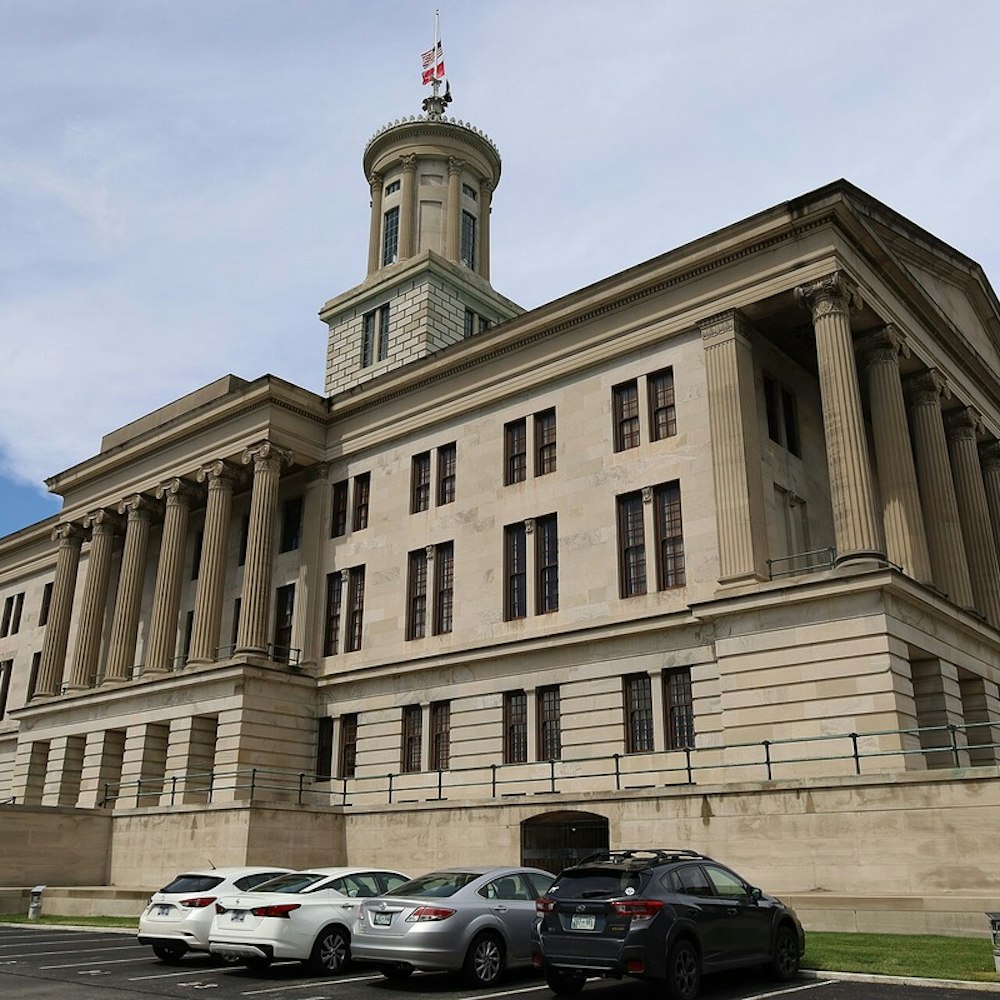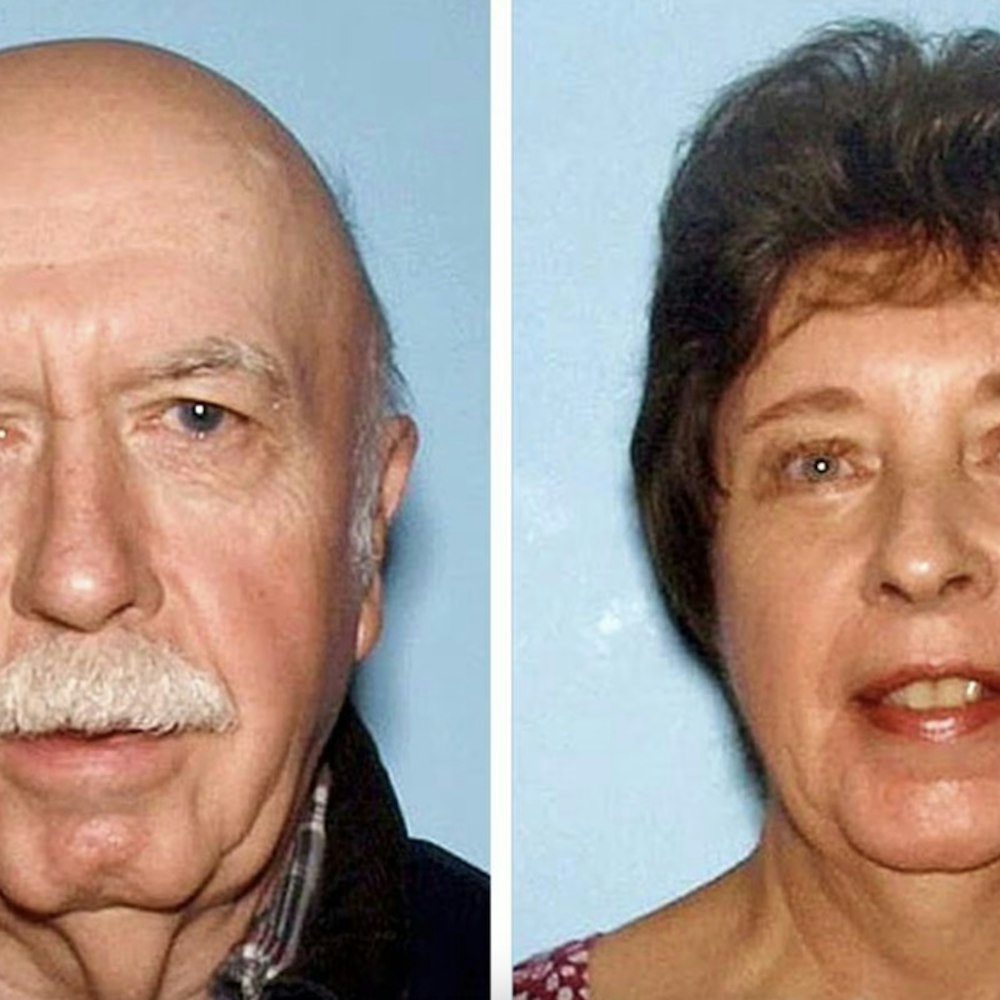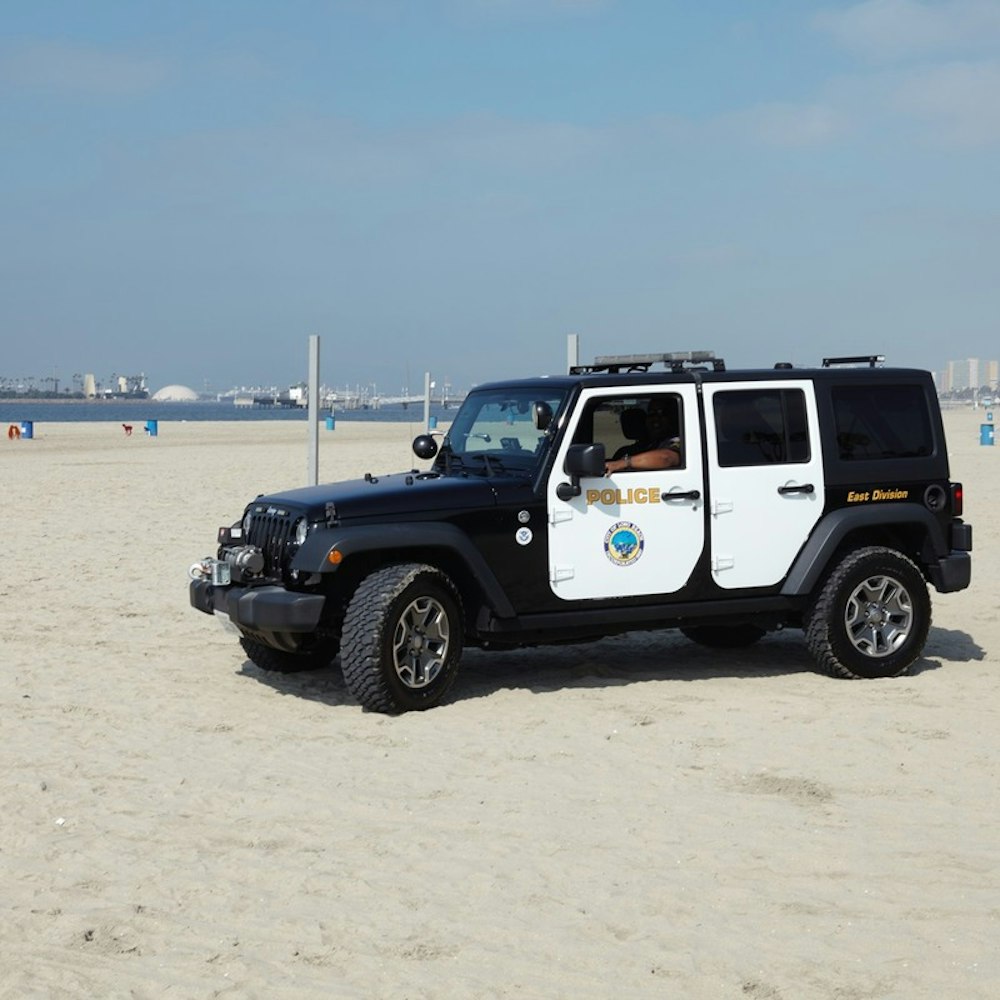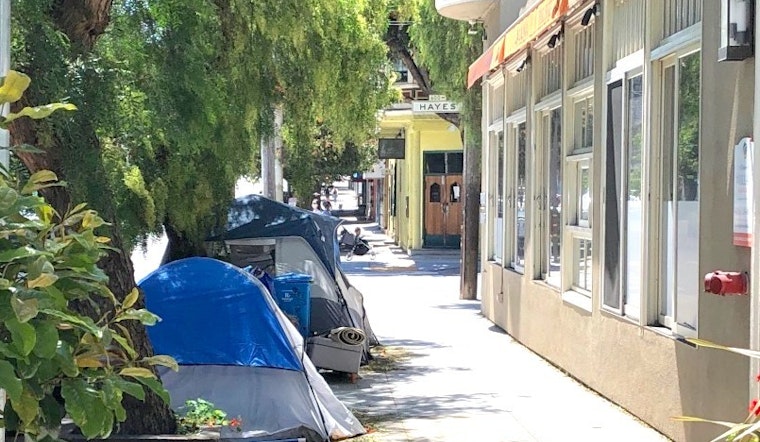
Much of the conversation around increased homelessness in District 5 has centered on the Haight. But Hayes Valley has been hard-hit as well.
Neighbors say that the area has seen the arrival of several persistent tent camps, which have become progressively more established and built-up since the city's shelter-in-place order came down in March.
Without access to sanitation or social distancing, the camps pose a threat of COVID-19 transmission to both their unhoused residents and passerby.
Late last month, the city addressed the most dire of the longstanding camps, on Octavia Boulevard. According to the Department of Emergency Management (DEM), 11 residents were offered a place in a congregate shelter or, for those over 65 or with serious health conditions, a city-leased hotel room. Four accepted the offer; seven declined and moved on.
As the city clears encampments in the Tenderloin to address its lawsuit settlement with UC Hastings, neighbors say more homeless people are being pushed into adjacent Hayes Valley.
That's driven further concern among two Hayes Valley groups that have spoken up about the issue.
"We are seeing things pop up in other parts of the community," said Jennifer Laska, vice president of the Hayes Valley Neighborhood Association (HVNA).
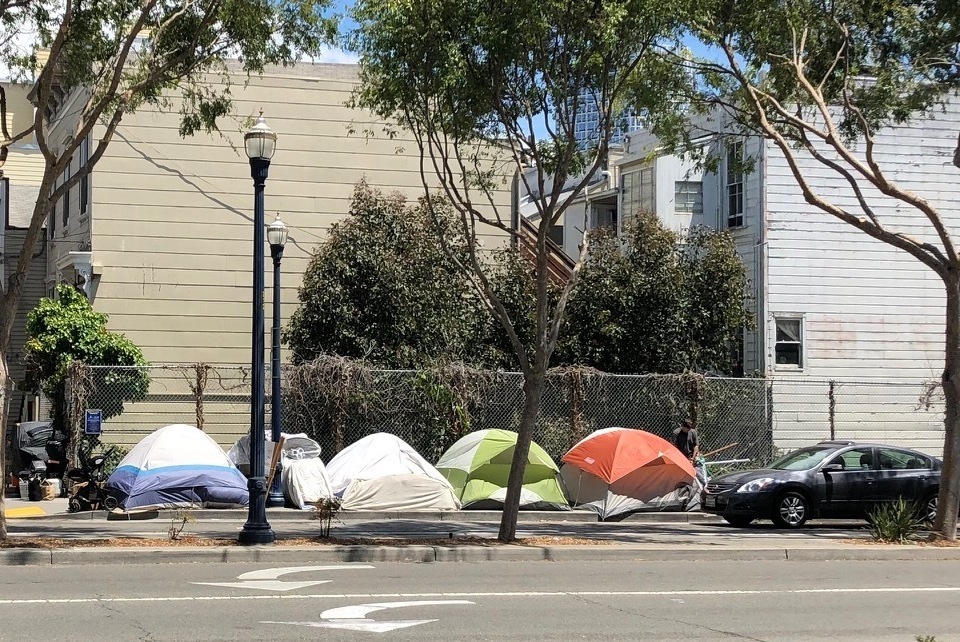
The first group, Better Living in Hayes Valley, is supported by a robust roster of area business owners, as well as some residents.
Last month, the group (which declined to comment for this story) wrote a letter to the Mayor and Board of Supervisors "demand[ing] that Hayes Valley be a tent-free zone and have existing encampments be permanently removed." The group offered to form an advisory board to help "prevent re-population of encampments."
The HVNA, the neighborhood's established community group, has also gotten involved. It's recommended three sites in Hayes Valley for the city's safe sleeping site program: sanctioned tent camps with social distancing, security, sanitation and essential services.
While the city released a list of 42 potential safe sleeping sites in June, it has yet to open any since, and recently closed an existing one in the Castro. None of the sites on the list of 42 are in Hayes Valley.
A DEM spokesperson said one safe sleeping site is currently in the works in the Mission, but declined to give the exact location. The Mission has also seen deteriorating street conditions in recent months, with large camps along 16th and Dolores streets rivaling some locations in the Tenderloin.
The only approved Mission location on the city's list is Mission High School. The school was initially supposed to reopen this month, before the SFUSD opted to start the school year with distance learning. The city had already closed the Castro safe sleeping site, at nearby Everett Middle School, in anticipation of students' return.
With the start of in-person classes still in limbo, the viability of SFUSD sites — which make up more than half of the 42 on the city's list — is equally unclear.
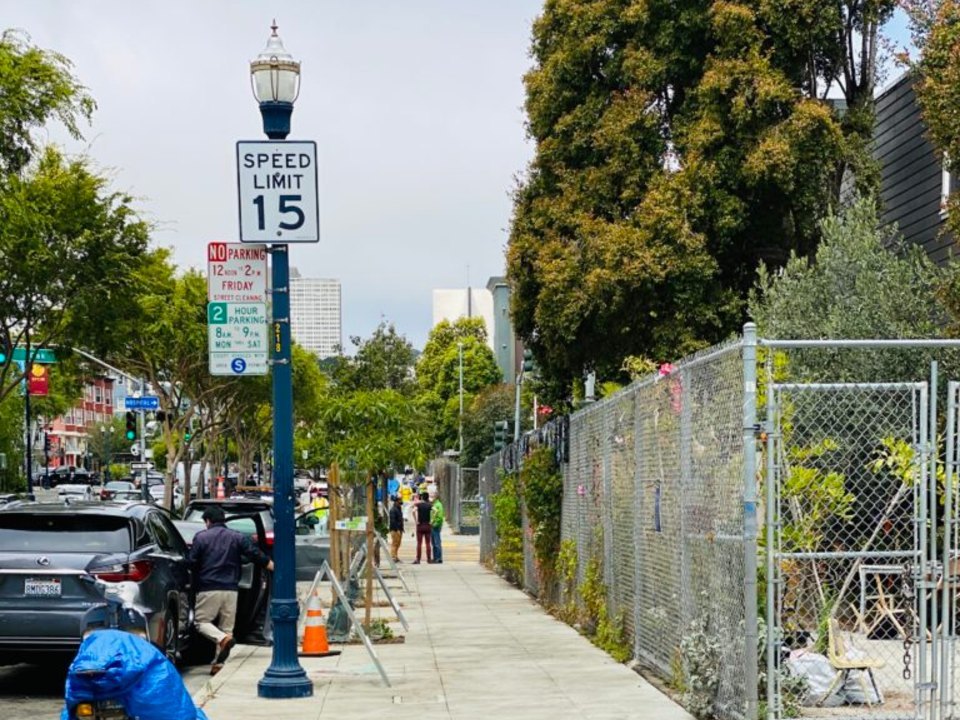
HVNA's top pick for a sleeping site is the former City College site at 33 Gough St., which was unanimously approved by the Board of Supervisors earlier this year as a future homeless navigation center. A city representative did not provide an update on the status of that project.
The other proposed locations are a parking lot at 600 McAllister St., and the performing arts parking garage at 360 Grove St.
"It's really difficult to navigate the city agencies" involved in opening a tent village, Laska said, but HVNA "wants to have answers and work with the city, rather than just push the problem to a different part of the city. We need various options."
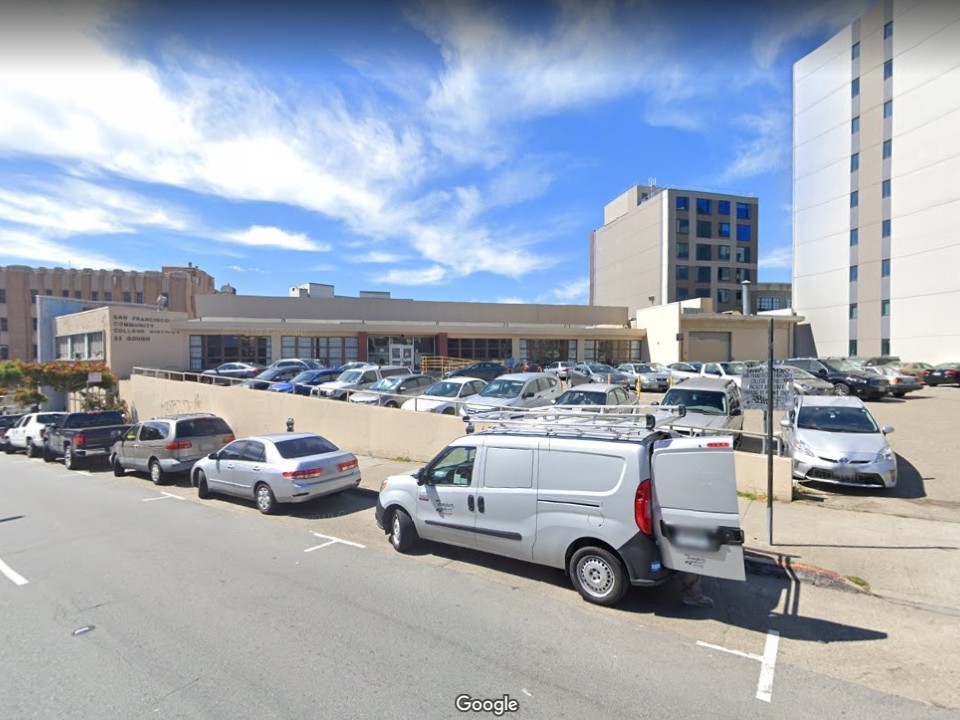
The safe sleeping sites have emerged as a key option for unhoused people who don't qualify for a hotel room, and are wary of congregate shelters where residents report insufficient COVID-19 testing and poor sanitation.
Residents of both the Haight and Castro sleeping sites have told Hoodline their experience there was positive, though most would still prefer hotel rooms.
Last week, the city announced it will stop leasing more hotel rooms. The remaining rooms will continue to admit only COVID-19 positive, elderly or critically ill people — the groups for which the city can receive federal reimbursement.
When Octavia was cleared, "it was very important to us that people be offered a place to go," Laska said. She's hopeful that a sleeping site could provide that place, improving conditions for both housed and unhoused neighbors.
A DEM spokesperson didn't comment on whether the three suggested Hayes Valley sites were under official consideration, saying only that the city would evaluate the need for new sites "continuously," and "including areas most impacted by unsheltered residents sleeping outdoors."
